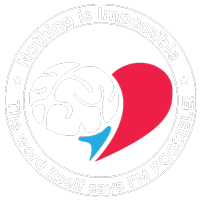Bereavement
Bereavement is a period of emotional processing of someone’s death that can last up to two years.
There are 5 stages involved in the grief cycle: denial, anger, bargaining, depression and acceptance. Some people might not go through all of them, and some can experience these in a different order; the way we experience grief is very personal.
Although grief can be experienced as the result of experiences other than someone’s death, such as a relationship break-up, a financial loss or the loss experienced from missed opportunities in life, these are unlikely to bring someone to experience all of the 5 stages, whereas someone bereaved will likely to go through all of the stages, in the above order and within a concentrated amount of time, which is why bereavement is an especially tough experience, probably one of the toughest in the journey of life.
The loss of someone dear may be traumatic and although some will come around the cycle of grief and somewhat become functional again, long-term depression may develop as a direct result being bereaved.
While we will be able to rationalise the loss sooner or later, we might not necessarily process the loss at a deeper level, which is why we may be mourning literally for a lifetime, with obvious consequences to our mental wellbeing and that of the people around us in certain cases, for example when children are involved.
When grief and depression don’t seem to resolve within up to around 2 years-time, it is important to seek professional support in order to close the grieving cycle and move on.
It is also possible to speed up the process of the grieving cycle once we have fully gone through the first two stages of denial and anger, which take around 6 months to complete. This is because working at a deeper level when someone is still in shock is counter-productive and can re-traumatise the person. We need to allow time for the most basic period of grieving, to allow the mind to start coming to terms with the loss, in fact during the initial period called denial, we refuse to believe what happened and we will try to rationalise the loss with statements such as: “he’s not gone, he’s just out and will come back any moment now”. It can take weeks before reality sinks in bringing us into a state of despair and anger.
The anger part of the cycle can last a few months and is characterised by strong feelings of desperation and overwhelm, even fear at times, fear for the future, and as such deep work is still unsuitable.
The person must move past the initial period of deep emotional upset to be able to work through the unconscious mind.
By working with the unconscious mind which is the part of the mind which is affected more deeply by the loss, the loss-causing event is processed, so the stuck grief is released. This way the experience can be placed in the past once and for all, thus enabling the person to cherish the memories and move on with their life.
Remember: “Nothing is Impossible, the word itself says I’M POSSIBLE!”


